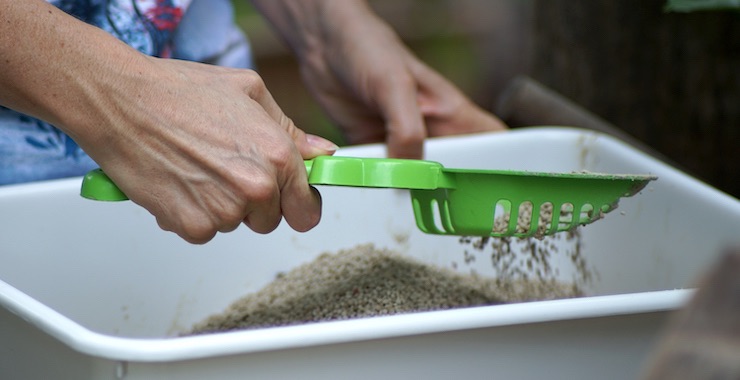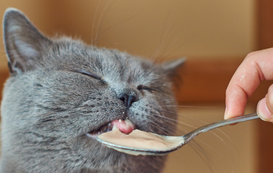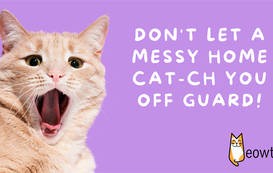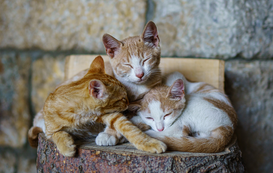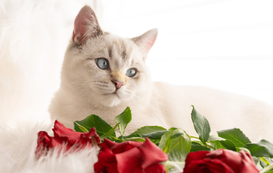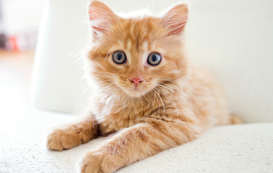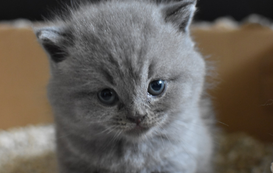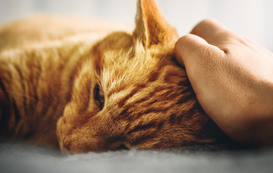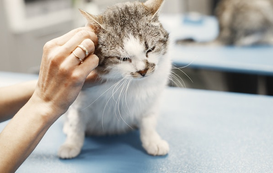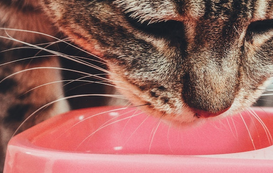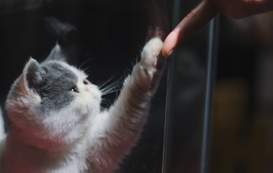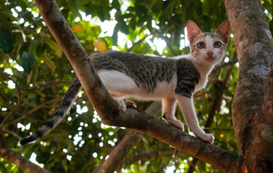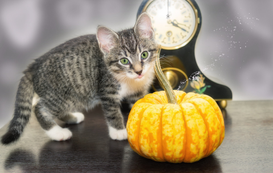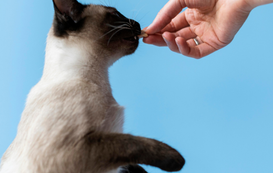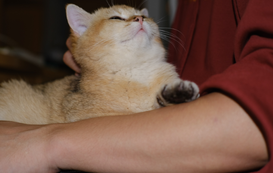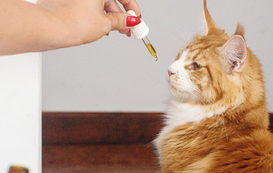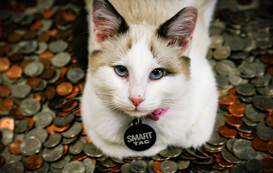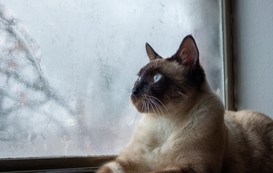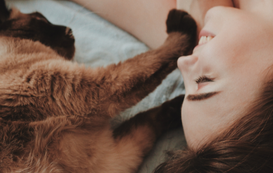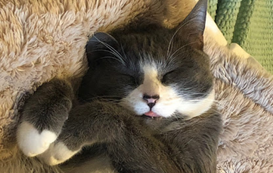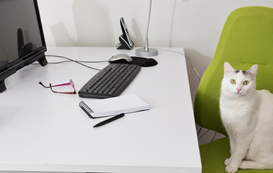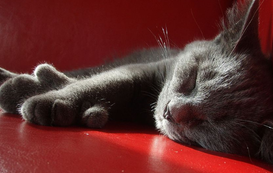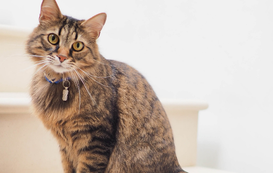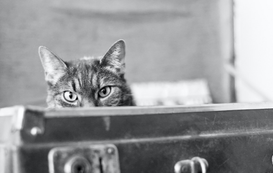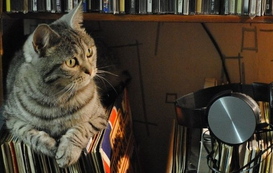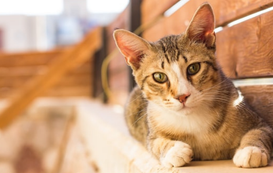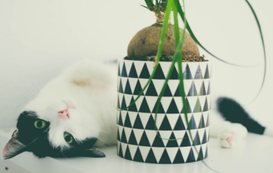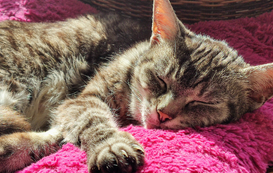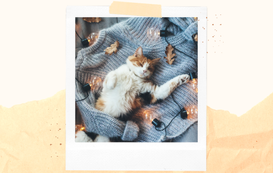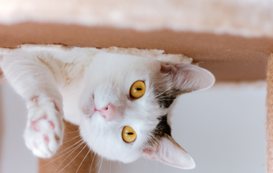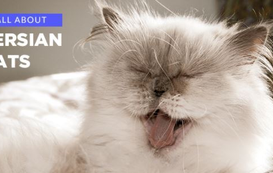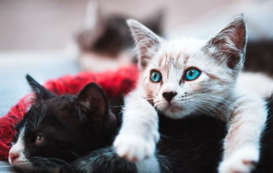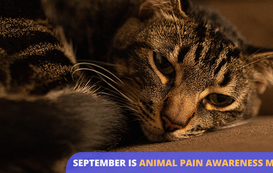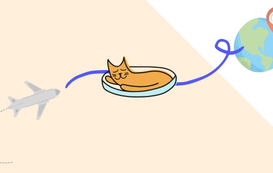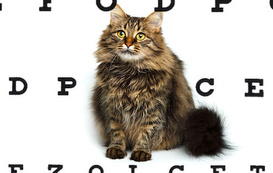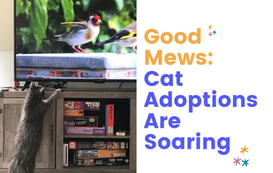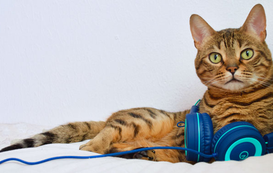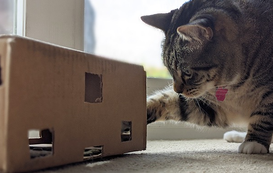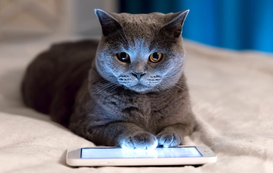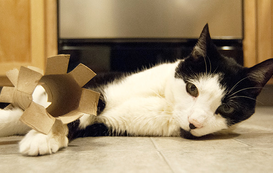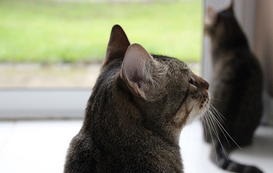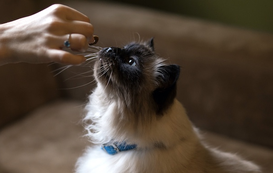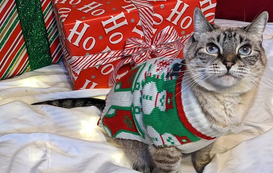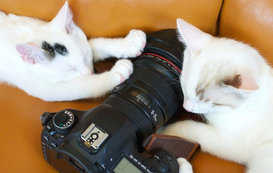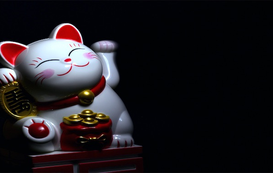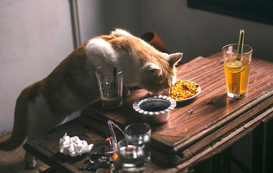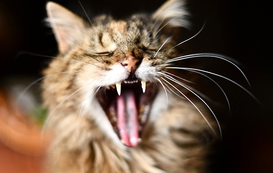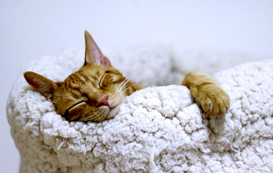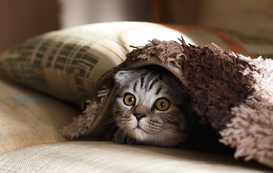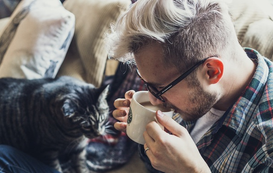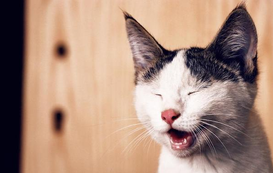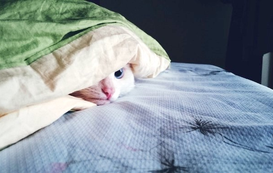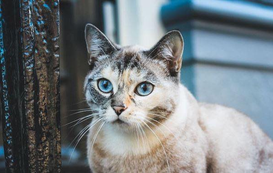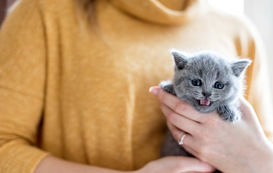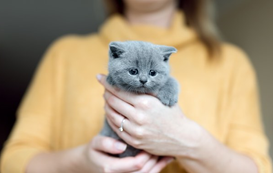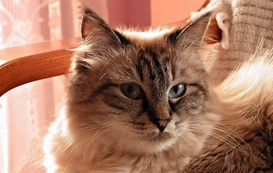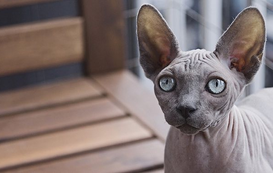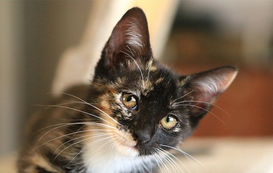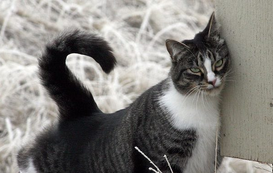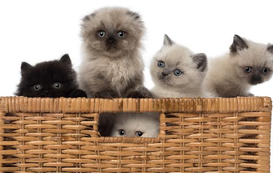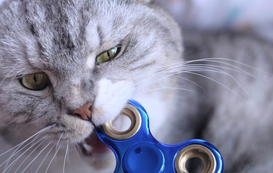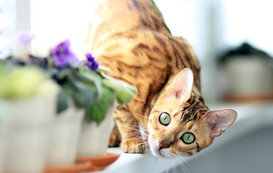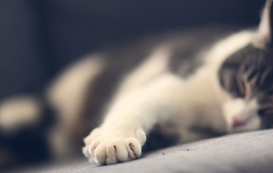Poop - we all do it. Fluffy and Peanut do it. Your neighbor's dog Thelma does it, and Bob the local barista does it. Some people think poop is hilarious while others think poop is a nasty four-letter word. But like the famous book by Taro Gomi: Everyone Poops.
While everyone poops, not everyone loves scooping the litter box, and that's why cat owners have opted for alternative litter boxes like Litter Robot. I mean, a robot that cleans the litter box?! What a dream! But the truth is, it's really important to keep tabs on your cat's poop. If eyes are the window to a human's soul, then a cat's poop is the golden ticket to their health. You find out so much about a cat's health by their stool. Monitoring Max's litter box is how I realized that he had inflammatory bowel disease (IBD). He started having diarrhea that could clear out the apartment. He's super classy and refuses to cover it, too. Le sigh. After a bunch of research and talking with my vet, we concluded that it was either IBD or intestinal cancer. When an ultrasound didn't show anything of concern, I scheduled a biopsy and endoscopy to get answers.
As I'm sure you've learned over the many articles about Max's health, I'll do almost anything for my boy. I weighed the pros and cons of doing the endoscopy and biopsy verses treating his symptoms as IBD. After talking with my vet and my mom, I chose the latter. While the procedures are not incredibly invasive, the last time Max was put under anesthesia, his blood pressure plummeted even after doing a full blood panel to make sure he was fit for anesthesia. So, the combined cons of anesthesia-his age (he's at least 14), the hefty price tag ($4,000), and the fact that if it came back positive, he likely wouldn't make it through chemo-made my decision easier. Sure, if all of those factors were different, my decision would likely have been different, but it wasn't, so we treated it as IBD. Well, I'm glad we did because a cat with untreated intestinal cancer would likely only live 6 to 12 months. Max has been dealing with this for over two years now. We don't have it completely under control and he has flare ups from time to time, but if it were cancer, the likelihood of him still being here would be slim to none. Anyway, my point is that the change in his poop is what triggered me to make a vet appointment and to do extensive research.
How much should a cat poop in one day?
A good general rule of thumb is that cats should poop at least once a day. However, the amount of times your cat poops in a day depends on multiple factors:
Age
Generally speaking, a kitten will poop more than an older cat will. On the flip side, when it comes to senior cats, Dr. Alan Schwartz of Compassion Veterinary Health Center says, 'you may even see times when they skip a day.'1
Diet
A cat who is fed a lower quality of food will often poop more frequently than a cat that is being fed a higher quality food. Why? Because when there is more filler than nutrient-rich ingredients, the cat will need to eliminate the garbage. When I put Max on a raw diet, his poops became solid, he pooped less, and they were less foul-smelling. Think of it this way: if you eat McDonald's five days a week, you're likely going to have some not so great poops. Whereas if you eat nutrient-dense foods five days a week, your gastrointestinal health will likely be much better.
Water Intake
The proper amount of water intake is also important when it comes to poop. If cats are dehydrated, they can become constipated which will lower their stool count.
Exercise
If your cat is more active, it's likely that he or she will have a more consistent poop schedule. Have you ever got that 'oh no!' ping in your belly when you're on a hike? It's like that, but for your cat.
Health
Chronic health issues such as IBD, hyperthyroidism, chronic kidney disease (CKD), megacolon, or intestinal parasites will also affect the amount of times your cat will poop daily.
What color should poop be?
Peanut's poop should be a dark brown. It can be various shades of dark brown, however it should never be black or tan. According to Dr. Waldrop, 'Black is consistent with digested blood in the stool, especially if it's shiny and looks like road tar,' he describes. 'Tan or light brown can be an indication of liver or pancreatic issues,' he says, 'but diets high in fiber will also produce a lighter-colored stool.'1
What does it mean if my cat has runny poop?
Runny poop is not a good sign. If you changed Fluffy's food without a gradual changeover, that's likely the cause. (Always do a gradual introduction of food when changing the diet. Try to do it over the course of a week or so.) However, chronic diarrhea can be a symptom of hyperthyroidism, pancreatitis, cancer, IBD, or irritable bowel syndrome (IBS). Ongoing diarrhea can lead to dehydration, so it's important to keep an eye on how long the bout is lasting. If it lasts longer than 48 hours, contact your vet.
How should cat poop smell?
I know... but follow me on this one. Poop is waste, and waste doesn't smell great. There's bacteria, gas, and all that jazz. Normal cat poop should be mildly stinky but should not be so foul, your eyes water and you gasp for breath. If your cat's poop goes from normal smelly to making you want to jump out the window, but you haven't changed his diet, it's time to contact your vet. Sudden changes in poop consistency and smell without a dietary change often means there is an underlying health issue.
I see fur in my cat's poop.
A little bit of fur is normal. However, if you see a huge clump of fur (think hairball but coming out the other end), that's not good. It means that Fluffy is overgrooming. Speak to your vet to figure out why Fluffy is overgrooming.
I see rice-looking things in my cat's poop.
Uh oh! Unless Peanut got into your white rice from dinner last night, chances are those little white things are tapeworms. Take Peanut and his poop sample containing the 'rice' to the vet so your vet can assess and give him the appropriate medication. Ideally the stool sample should be taken to the vet within 24 hours in order to get an accurate fecal analysis.
What consistency is normal?
I know this is going to sound like a weird take on Goldilocks and the Three Bears, but the consistency shouldn't be too hard or too soft, it should be juuuuuuust right. It should be compact but not too firm, and it shouldn't leave film or residue behind. I'm weird and tend to describe poop consistency to my vet in the form of chocolate ice cream:
- Freezer burned = hard
- Hard ice cream (that requires an ice cream scoop) = solid and normal
- Soft serve = close to diarrhea
- Chocolate milk = diarrhea
(Don't ask what's wrong with me; I couldn't tell you.)
Purina put together this handy chart to help identify what is normal and what isn't. According to this chart, you want Fluffy and Peanut's poop score to be around 2. If their poop looks like 4 or higher, it means it's time to visit the vet.
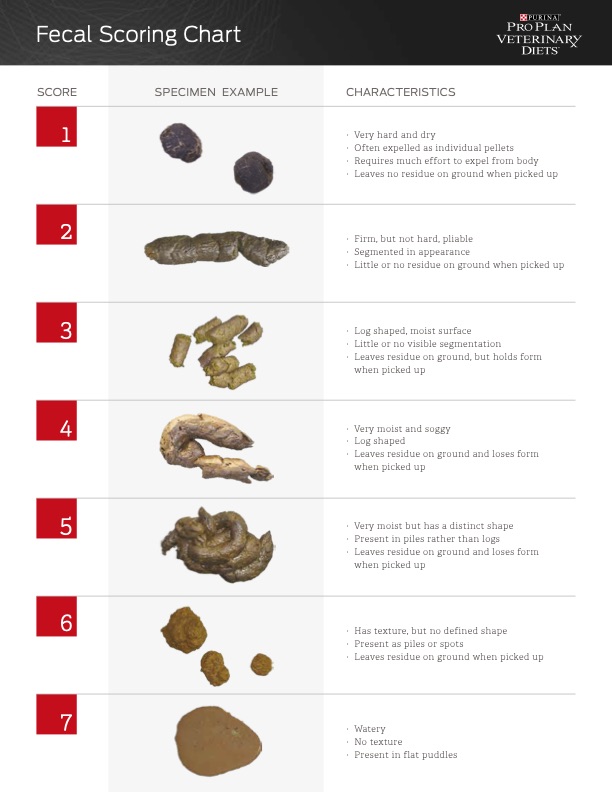
Purina Fecal Scoring Chart2
My cat is pooping outside of the box.
This could be caused by a myriad of issues; don't you wish Fluffy could speak and just tell you why? It could be a behavioral issue (did you bring home a new friend?) or it could be health-related. The most common reasons for missing the box are stress, new animals or humans in the home, change of environment or routine, a dirty litter box, the wrong size litter box, and/or health reasons. Try ruling out what is relevant and what isn't. Keep track of when it started and for how long it's been going on so you can talk to your vet about it.
When you should see your vet:
- If there is blood or mucus in the stool
- If there is diarrhea for more than 2 days
- If there is string or dental floss in the poop
- If your cat's poop and temperament change
- If your cat is constipated for more than 2 days
- If your cat continues to poop outside of the litter box
- If your cat has hairballs in their stool
- If your cat has worms in their poop
Keeping tabs on Fluffy and Peanut's poop can be stinky business, but it's one of the best ways to be on top of their overall health. Many cat sitters on Meowtel understand that monitoring poop can be just as important as scooping it. It's not uncommon for cat sitters to ask about litter box habits during a meet and greet, should you choose to schedule one. Sitters on Meowtel often pay close attention to these details to help keep kitties happy and healthy while you're away.
Mitchell, Sandra. 'What Should My Cat's Poop Look Like?'. Retrieved from https://www.petmd.com/cat/general-health/what-should-my-cats-poop-look-like
Purina. 'Fecal Scoring Chart.' Retrieved from Purina Institute
Photo by chatchawarn loetsupan via Pexels
Ready to ensure your feline friend's health is in tip-top shape, even when you're away? Find a cat sitter on Meowtel who's ready to keep a close eye on those precious poops!

